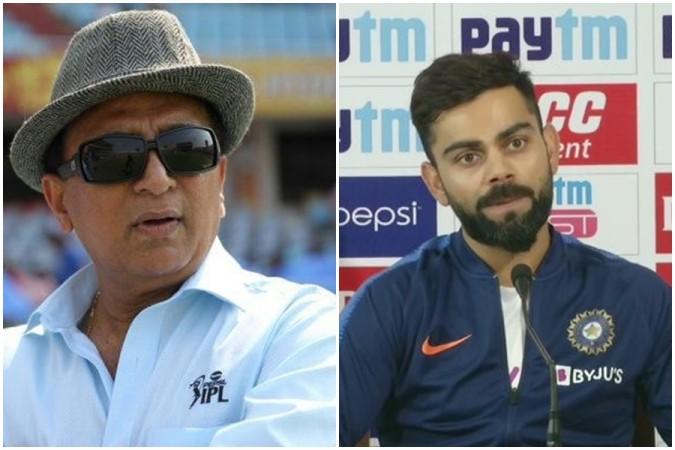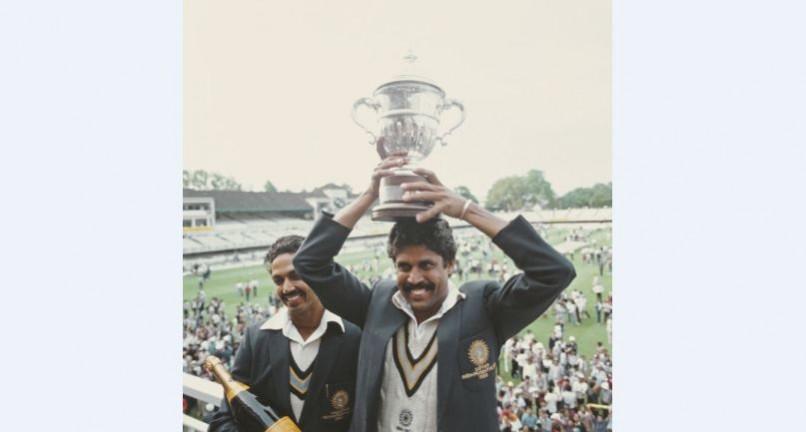
There wasn't much drama in the India vs Bangladesh day-night Test as the visitors capitulated without a fight. But there was much drama off-field. First, Harsha Bhogle and Sanjay Manjrekar got into a heated argument and then, Sunil Gavaskar criticised Virat Kohli for saying that Indian teams started 'standing up for themselves' after Sourav Ganguly became captain.
The latter episode merits greater attention. Gavaskar said that Indian teams used to win matches and series abroad in the 1970s and 1980s, so, Kohli shouldn't say that they have started performing only since 2000. He then added: "Lot of people think cricket only started in India in 2000."
Many fans may take an adverse view of these comments. They will highlight the fact that Kohli wasn't talking about winning but, instead, speaking specifically about the aggressive brand of cricket his team is playing, especially in regard to fast bowling. Also, his comments were in response to a question by Manjrekar on how pace bowlers are playing as big a role in India's victories as spinners.
Why Gavaskar is right
But Kohli's comments are only one example of how the media often insults past Indian players and claims that they weren't tough enough. Suggesting the Indian teams of earlier eras were spineless and folded up without a fight is passé.
Nobody exemplifies this more than veteran editor Shekhar Gupta. Repeatedly in his columns and television shows, he has described Indian sides from earlier generations as 'good losers' and derisively talked about Bishen Singh Bedi's practice of clapping when a batsman hit him over the top for six.

Such talk is utter rubbish and is highly disrespectful of men who paved the way for the success of modern Indian cricket. What people don't understand is that being tough doesn't mean being abusive. Just because modern Indian players like to sledge their opponents through colourful language doesn't mean they are tougher than those who played earlier.
Past titans
Nobody in the history of Indian cricket has shown more guts than Mohinder Amarnath. During a match against West Indies during India's tour of that region in 1983, he had his teeth knocked out by a bouncer while trying a hook. Amarnath had to go off the field but he returned.
The first ball he faced on coming back was again a bouncer and guess what? He went for the hook again and succeeded. No amount of English swear words can match this level of bravery.
The clapping of Bedi that Shekhar Gupta is so fond of presenting as an example of past Indian players' spinelessness was acutally another example of cricketing bravery. By clapping, Bedi was encouraging the batsmen to go for the big shot again. Unlike spin bowlers of today, Bedi didn't cower when hit over the top. He continued to flight the ball and dare the batsmen to go for it again. Very often, that brought about the batsman's downfall.
Winning abroad not recent phenomenon
Gavaskar is also right that Indian teams in the 1970s and 1980s were actually winning abroad against tough opposition much more often than since then. The 1970s saw series victories for India in West Indies, England and New Zealand.
India thumped England in the 1986 tour as well. 1980s also saw good performances by India in Australia where they successfully defended a small target at MCG to win a Test and came very close to winning the series.
The 1983 World Cup win and 1985 World Series victory are also examples of the toughness and competence of those sides. And nobody should dare suggest that Virat Kohli's colourful language is an example of 'fighting spirit.' When it comes to that, nobody could beat Kapil Dev.
So, be it Virat Kohli or Shekhar Gupta or any other Indian fan, do remember that Indian cricketers in the past didn't lack toughness or fighting spirit. The fact that an Indian cricketer Nari Contractor almost died due to a bouncer from Charlie Griffith should deter anyone from even suggesting that.

















